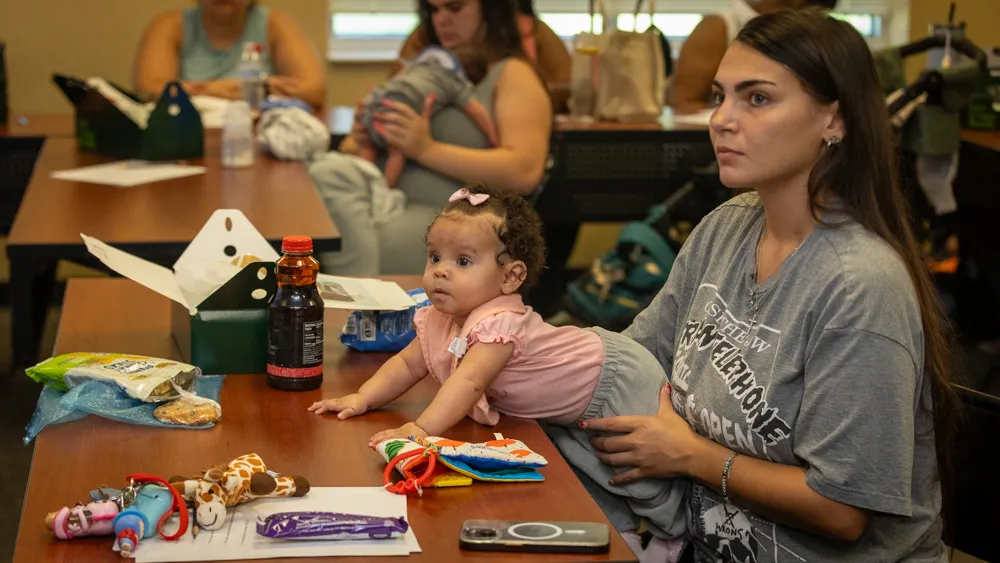Ascension Florida will expand its telehealth services for pregnant people after the award of a $7.8 million grant from the Florida Department of Health.
Ascension Florida Chief Clinical Officer Dr. Syed Jafri says the program will be fully operational in early 2026.
The health care system, with four hospitals in Northeast Florida including Ascension St. Vincent’s in Riverside, expects to hire people this fall who will provide pregnant people with information about how to access lactation support and nutrition counseling as well as car seat installation training and stress management.
Ascension has worked the last 16 years to lower Duval County’s infant mortality rate. Its Brighter Beginnings program has helped its local health care providers understand there is a lack of access to prenatal care as well as a lack of complete understanding of the maternal health care system in pockets of Jacksonville.

“The navigation is what we’re really looking at, connecting mothers with the things that they need,” Jafri says. “When we do that sort of work, the infants do better as well when they are born. So, it’s getting ahead of that and getting people on the phone with us, then into the clinics. … It’s resourcing them on the outside as well to ensure that it’s holistically delivered.”
Duval County has an infant mortality problem.
In 2023, 7.9 out of every 1,000 children born in Duval County died before their first birthday. That’s compared to 6 out of 1,000 Florida babies. The local figure declined over the last five years, from 9.5 children out of every 1,000 live births in 2018, but it has remained stubbornly higher than the statewide rate for the past decade.
Duval County also has a maternal mortality rate that is consistently higher than the statewide figure. However, maternal health is more than whether a birthing parent survives more than six weeks after their pregnancy ends.
“Rare is the case where there’s infant mortality and not maternal signs of distress,” Jafri says. “If you’re able to go more upstream and take care of the No. 1 person who has priority for child rearing, you’re going to see a reduction in infant mortality.
“We see across the board, where these gaps are closed and the mother does better beforehand, the mother does better afterwards.”
Ascension Florida has nine hospitals and nearly 200 health facilities in Florida and Southeast Georgia. More than 10,000 babies are born each year across its Sunshine State operations — including approximately 3,800 in Northeast Florida.
“The Florida Department of Health is excited to team up with Ascension St. Vincent’s to help address maternal morbidity and improve birth outcomes in Florida,” the Florida Department of Health said in a statement. “The program is designed to aid in providing telehealth services and care coordination to women statewide.”
Last month, the Harris Poll released its third State of Maternal Health. It asked more than 2,300 women across the country in an attempt to better understand maternal health and gaps in care for pregnant people.
The 18-page report concluded that advocacy, support, education, autonomy and communication are critical to a positive pregnancy journey.
“Without arming these women with proper education and support, we are setting them up for negative experiences and regret,” the Harris Poll stated.
The Harris Poll data found that 41% of women polled sustained challenges in accessing child care or an ability to take time off to attend appointments.
Jafri notes that maternal telehealth is part of the village of care for mothers. The state grant allows Ascension Florida to widen both.







